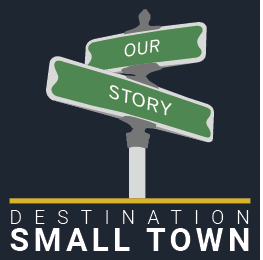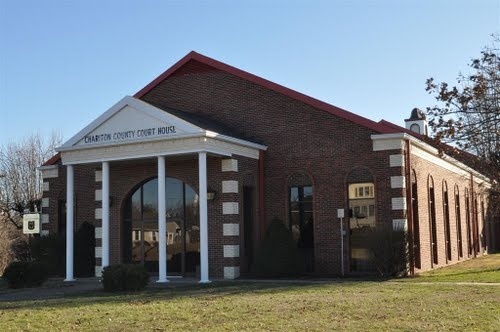Since the founding of our communities, organizations, businesses and citizens have stepped forward to build and serve their community. Click on any of the logos below to learn about those who made this website possible! If you would like to learn about becoming a sponsor CLICK HERE!
- County: Chariton County, MO
- Region: Northwest MO
- Sponsors
- About Brunswick, MO
- Businesses
- Community Organizations
- Faith Organizations
- Festivals and Events
- Points of Interest
- Veterans
- Visit Website
Learn how to Contribute to any of the above categories.
No news yet. Got some news? Hit that NEW POST button!
About Brunswick, MO
When explorers Lewis and Clark passed this way in 1804, they noted: “At the confluence of the Grand and Missouri Rivers on the lower side there is this beautiful situation. The bottom is a handsome prairie, which is seen extending to the water’s edge and a mile in width: the upland then raises with a gentle ascent with here and there clumps of trees. Here is a delightful situation for a village.” Brunswick became that village 25 years later, replacing the Native Americans, who had named the Missouri River.
European settlers trickled in slowly until about 1820, when James Keyte, a Brunswick, England, native and Methodist minister, built a cabin in Keytesville and in 1836 founded Brunswick. Here he spent the rest of his life, serving variously as postmaster, merchant, builder, and steamboat line manager. He lured boatmen to Brunswick by giving them free land.
The soil was rich. Trade in tobacco, grains, cotton, honey, pork and furs flourished. Tobacco factories sprang up. James (Oz) Kelliker of Brunswick still has the forms used by his father to make cigars in the Kelliker factory. A brick factory used soil from what is known today as “clay cliff’. Part of one tobacco factory footing forms the retaining wall in front of Udell and Ruby Unternaehrer’s home on Vine Street. The brick factory was south of the present railroad tracks.
The first church was the South Methodist. The present United Methodist Church, remodeled over the years, still has “South Methodist” etched on its transom. A North Methodist Church was soon established. Other churches quickly followed.
The first school, taught by Judge John M. Davis, was opened in June, 1840, for a five-month term. These early schools required tuition.
The first German colony arrived in 1840. The first newspaper, The Brunswicker, was published Oct. 14, 1847, one of Missouri’s 10 oldest newspapers. It continues to publish. The railroad came in about 1867. Trains and Missouri River barges continue to move the products of this fertile land.
A group of prominent local men joined the California Gold Rush in 1849. Their stories are told in letters sent home by a man named Locke to his wife, who saved them. A book containing these letters is in the Brunswick Library.
Brunswick’s potential as a future trading hub may have been diminished by bitterness, which divided citizens during the Civil War. This is illustrated by the passage from the 1883 History of Howard and Chariton Counties which called the following excerpt a “curious memento.” “We, the undersigned citizens of Brunswick, pledge our sacred honor to maintain and defend the stars and stripes, which now float on what is now known as the Douglas pole … If by accident, or otherwise, the same shall be destroyed, to erect another in its stead. We further pledge ourselves to protect … the rights of both person and property of all Union men in our midst … All the foregoing we solemnly pledge our honor to Lieutenant-Colonel Robert White shall be carried out in good faith.” It was dated July 7, 1861, and signed by A. Kennedy, mayor-Frederick Sasse and John D Plunkett, councilmen; and P. R. Dolman, clerk. Despite this, Brunswick had many Southern sympathizers among its citizens, and many families owned slaves.
A significant contribution to Brunswick history occurred the night of March 10, 1914. Seven farmers had gathered around a pot-bellied stove in a one-room country school and began what became the Missouri Farmers Association (MFA). Newcomer School is preserved as a monument to these men: Aaron Bachtel, Thomas Penick, John Koehl, Earl Smutz, Will Armstrong, and George and Will Heisel.
Louis Kinkhorst, a Civil War veteran built an icehouse in Brunswick stocked with ice cut from the Grand River. From this beginning Kinkhorst and his son Ludwig, launched businesses in coal delivery, ice making, individual cold storage lockers, soda bottling and beer distributing. The Brunswick Distributing Co. remains as one of Brunswick’s major employers.
Among Brunswick’s once famous names were Sol Smith Russell, world-renowned actor for whom the Russell Opera House on Broadway was named, and where he once performed; Wilbur Sweatman, world-famous jazz singer, once featured in Time magazine; the brilliant Dr. Cyrus W. Bowen, who for many years conducted a pharmacy school attended by students from all over the world.
Brunswick started as a river town. The rivers that sparked its beginnings and early growth all-too-frequently flooded, destroying millions of dollars worth of crops and property. Brunswick remains a village at the mercy of the mighty Missouri and the fickle Grand River.
Businesses of Brunswick, MO
The businesses of our towns are truly the lifeblood of each community, click on any businesses below to learn about them, to learn how to add your business to your town and county page CLICK HERE!
Chariton County, MO
Visit our county page and you will find information about our town and county's points of interest, festivals/events and faith community. You also will learn about the community organizations that have built and continue to build strong communities (chambers, community groups, and departments, etc) and much more when you visit the Chariton County, MO page.

